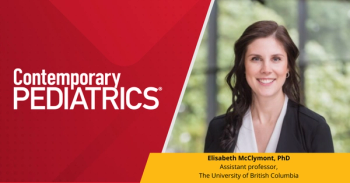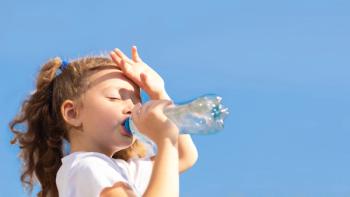
When parents have a drinking problem
Parental drinking can cause a child to have problems in school, somatic complaints, or other difficulties. Pediatricians need to uncover alcohol addictions and tactfully and firmly steer parents toward appropriate help.
When parents have a drinking problem
By Celeste R. Wilson, MD, and John R. Knight, MD
Parental drinking can cause a child to have problems in school, somatic complaints, or other difficulties. Pediatricians need to uncover alcohol addictions and tactfully and firmly steer parents toward appropriate help.
According to recent estimates, 28 million children in the United States (or one of every four) are living in a household with an alcoholic adult.1 Pediatricians need to be aware that parental drinking problems are relatively common, know how to ask parents about alcohol use during office visits, and intervene before children are seriously affected. Although they treat children, not parents, pediatricians should be able to recognize signs and symptoms of parental alcoholism and refer a parent for a thorough assessment. It is appropriate to be particularly vigilant when a child has chronic vague complaints, school difficulties, or mental health problems. Our awareness of what it means to grow up in an alcoholic family has been growing in recent years, as has the body of scientific literature on the unique problems and challenges facing children of alcoholic parents.
Risks of parental drinking
Children of alcoholics are at risk for problems ranging from serious medical conditions to psychosocial difficulties (Table 1).
TABLE 1
Childhood problems associated with parental alcoholism
Medical problems. Fetal alcohol syndrome is the most widely known disorder associated with parental alcohol abuse.2 Recent research suggests that having an alcoholic parent is also tied to a variety of other medical problems, including sleep disturbances, gastrointestinal complaints, headaches, fatigue, and decreased appetite.3 Children who grow up with alcoholics are also at risk for developing alcohol disorders themselves when they grow older.4
Mental health problems. Children of alcoholics are at greater risk than other children for developing attention deficit hyperactivity disorder, anxiety, depression, conduct disorders, and other mental health problems.5 School problems are especially common. Compared with other youngsters, the children of alcoholics have higher rates of learning difficulties, decreased attention, misbehavior, suspensions, truancy, absenteeism, and grade retention. They also are less likely than other children with special needs to receive special educational services.3
Family/social problems are also associated with parental substance abuse, which is a major contributor to many child maltreatment cases.6 In fact, nearly one half of substantiated cases of child neglect and abuse are associated with parental alcohol or drug abuse.7
Neglect is one of the more common manifestations of parental substance abuse. It is far less obvious than physical abuse. Pediatricians should be alert to signs of neglect so that they can intervene early and prevent further harm to the child.
Child neglect has various definitions.8 Federal law characterizes child neglect as the failure to provide for the basic needs that support a child's growth and development.9 Failure of a family to provide for their child because of limited financial resources is not considered neglect. Rather, neglect is the failure to provide for a child despite the financial resources to do so.9 The type of neglect depends on the nature of the deprivation to which the child is subjected. 10
- Physical neglect includes failure to provide for adequate food, clothing, and shelter. Going to school hungry, poor personal hygiene, homelessness, or living in a home that fails to meet local sanitation standards are examples of this type of neglect.
- Emotional neglect is characterized by a failure to offer adequate social stimulation through talking, love, nurturance, and affection. Emotional neglect may result in depression, anxiety, aggression, social withdrawal, or hyperactivity.
- Medical neglect is manifested by failure or delay in seeking medical or dental care or by not complying with instructions to take medications. Monique was most clearly suffering from this type of neglect. Whether failure to comply with well child-care visits constitutes neglect is controversial.
- Educational neglect becomes a concern when a child's absences from school total 30 days or more in a school year. Children who are out of school this much may be undertaking inappropriate parenting duties, such as cleaning the house or baby-sitting, at the expense of their education.
- Safety neglect is seen in a failure to provide adequate supervision. The child is at significant risk of injury. Pediatricians who suspect this type of neglect should emphasize safety-related anticipatory guidance.
When to suspect parental alcoholism
Evidence of parental alcoholism may be well concealed. Because children of alcoholics do not usually have overt signs of their parents' problems, you may not suspect that such a child is growing up in an alcoholic environment. Thus, to uncover any red flags for alcohol abuse, it is imperative to take a thorough history and perform a physical examination and psychosocial evaluation. You should do this for every child in your practice.
History. Gather data about the child's developmental milestones, academic performance, and behavior. Nonspecific behavior problems, such as academic difficulties, enuresis, irregular sleep patterns, impaired interpersonal relations, psychopathology, excessive masturbation, role reversal, and discipline difficulties can all be indicators of a problem at home.
Physical examination. The child's hygiene, overall physical appearance, and developmental skills, as well as the interaction between parent and child, may suggest child neglect. Current growth parameters should be charted since child neglect frequently presents as failure to thrive. Inspection of the child's mouth may reveal poor oral hygiene and gross dental decay. The skin exam can often provide information about unusual or excessive scars, burns, bruises, and scratches.
Psychosocial evaluation. Ask questions about the primary caretaker, home environment, social support systems, and psychological stressors. To find out about the child's home environment, ask the parent specific questions, such as: Do you have any medical problems? Are there any mental health problems, such as depression or anxiety disorders, in the family? Do you or anyone else in the home smoke, drink alcohol, or use drugs? If the last question evokes a Yes, follow up with a screening test for substance abuse and, if it is positive, further evaluation. Gaining the parent's cooperation in this process requires great tact, as illustrated in
We suggest using the CAGE questions as the screening test. CAGE is a mnemonic device for the four questions in this simple test:
- Have you ever felt that you should Cut down on your drinking?
- Have people Annoyed you by criticizing your drinking?
- Have you ever felt bad or Guilty about your drinking?
- Have you Ever had a drink first thing in the morning to steady your nerves or get rid of a hangover (eye-opener)?
A Yes to two or more CAGE questions suggests an alcohol disorder.11
How to help the family
When results of the CAGE test point to an alcohol problem, explain the result to the parent, express your concern, and suggest getting a more complete evaluation. Often, the most available appropriate resources can be identified by speaking with the parent's primary care provider once consent is obtained. In addition, pediatricians should become familiar with the substance abuse services in their community.
We suggest using the FRAMER mnemonic (Table 2) to guide your interaction with the family. 12 Begin by listing the Facts that have raised concern. Tell the parent that you are Required by law to Report your concerns to protective services when a child is at risk. Direct the parent to have a formal Assessment to determine the exact nature of the problem and need for treatment. You can facilitate this process by offering a Menu of alternatives for where and how this assessment can be performed. Empathy is essential in delivering this information. By insisting that you receive a Report on the assessment and continuing to communicate with the child protection worker you can ensure that the assessment has been performed and maintain a good relationship with the family.
TABLE 2
FRAMER:Principles for effective interventions with parents
Families with an alcohol problem often need individual and family counseling, and a referral to child-centered support groups (such as Alateen) may be helpful.13 Tell the older child that he or she is neither to blame for the parent's drinking problem nor responsible for its "cure."
Although the specific reporting laws vary from state to state, mandatory reports generally are required to alert the appropriate child protection agency when "the reporter suspects or has reason to suspect" child abuse or neglect.9 (See
A mandated report filed on behalf of the child is a formal way to protect the child's rights and secure his safety. Once the report is filed, the designated state agency is responsible for conducting a thorough evaluation to determine whether or not the child is safe and if foster care placement is necessary. The goal is to keep the family intact, if possible, while protecting the child.
A family service plan is designed with this objective in mind. Once the plan has been formulated, a family worker monitors the family to ensure that recommendations are being followed. The plan may include parenting classes, day-care services, a parent aide, counseling, psychotherapy, or substance abuse treatment. Intensive plans also include family-based and individual treatment at the home, often more than once a week. The service plan generally is implemented for six months. If the family does well during that time, the state agency often ceases the monitoring. If the parents repeatedly fail to abide by the terms of the service plan, however, the child may be placed in foster care.
Pediatricians can make a difference
Some pediatricians may ask why they should address parental problems. This is a valid question, and it has a simple answer: By helping parents who have a drinking problem, pediatricians can improve the health of these parents' children. A recent study found that two thirds of mothers who brought in their children for pediatric care had significant health problems of their own. More than 17% of the mothers screened positive for alcohol problems, including one third of those who smoked.14 Significantly, most of these women said they would "not mind" or "would welcome" screening and referral by the pediatrician. Another study found that despite their addiction, mothers who abuse substances feel love and concern for their children, which may motivate them to seek treatment.15 These studies clearly suggest that children will benefit when the pediatrician uncovers a parent's drinking problem. In this era of managed care where time has to be carefully rationed, however, pediatricians may be reluctant to delve into parental problems, particularly if they feel anxious about their level of professional expertise in this area. Pediatricians should remember that they are not responsible for the direct treatment of their patients' parents. They need only to identify parental alcoholism and make an appropriate referral. Doing so will promote the child's overall health.
REFERENCES
1. Grant B: Estimates of US children exposed to alcohol abuse and dependence in the family. Am J Public Health 2000;90:112
2. Jones KL: Smith's Recognizable Patterns of Human Malformation. Philadelphia, PA, WB Saunders Company, 1988
3. Emshoff J, Price A: Prevention and intervention options for children of alcoholics: Monograph presented at meeting on Core Competencies for Involvement of Health Care Professionals in the Care of Children and Adolescents in Families Affected by Substance Abuse. Washington, DC, Office of National Drug Control Policy, 1997
4. Smart R, Fejer D: Drug abuse among adolescents and their parents: Closing the generation gap in mood modification. J Abnorm Psychology 1972;79:153
5. Earls F, Reich W, Jung K, et al: Psychopathology in children of alcoholic and antisocial parents. Alcohol Clin Exp Res 1988;12:481
6. Department of Health and Human Services: Blending Perspectives and Building Common Ground: A Report to Congress on Substance Abuse and Child Protection. Washington, DC, US Government Printing Office, 1999
7 Child Welfare League of America: Alcohol and Other Drug Survey of State Child Welfare Agencies. Washington, DC: Child Welfare League of America, 1998
8. Dubowitz H, Black M: Child neglect, in Reece R (ed): Child Abuse: Medical Diagnosis and Management. Philadelphia, PA, Lea & Febiger, 1994, pp 279-297
9. Adapted from Child Abuse and Neglect State Statutes Series, Vol 1, No. 1. US Department of Health and Human Services, Washington, DC, 1998 Washington, DC, 1999
10. Schmitt B: Child neglect, in Ellerstein N (ed): Child Abuse and Neglect: A Medical Reference. New York, John Wiley and Sons, 1981, pp 297306
11. Bush B, Shaw S, Cleary P, et al: Screening for alcohol abuse using the CAGE questionnaire. Am J Med 1987; 82:231
12. Vandeven A, Knight J: The Father's Handprint: Bright Futures Center for Pediatric Education
13. Alateen: Hope and help for young people who are the relatives and friends of a problem drinker.
14. Kahn R, Wise P, Finkelstein J, et al: The scope of unmet maternal health needs in pediatric settings. Pediatrics 1999;103:576
15. Hawley T, Halle T, Drasin R, et al: Children of addicted mothers: Effects of the "crack epidemic" on the caregiving environment and the development of preschoolers. Am J Orthopsychiatry 1995;65:364
DR. WILSON is Co-Chief Fellow in General Pediatrics, Children's Hospital, Boston, MA.
DR. KNIGHT is Assistant Professor of Pediatrics, Harvard Medical School, and Director, Center for Adolescent Substance Abuse Research, Children's Hospital, Boston.
Monique is a 3-year-old girl being seen in your office. Her mother, Ms. Osterman, reports that Monique has been cranky for the past few days but she does not know why.
"Has she had a fever?" you ask.
"Yeah, she's felt warm," she states casually.
"Has she told you that anything hurts?" you continue.
"I don't know. She doesn't talk very much. She's only 3. But something must be hurting her, because she cries all the time. I just can't listen to it anymore. Thank God she's my only one."
Ms. Osterman confirms that Monique has not had vomiting, diarrhea, cough, or rhinorrhea. Her appetite is normal. Ms. Osterman is Monique's sole caretaker. She does not have any close relatives in the area and recently broke up with a boyfriend. She works inconsistently as a part-time waitress or cashier.
Monique has an axillary temperature of 101° F. Her other vital signs are normal. Her face is expressionless and does not appear to have been washed recently. She has been lying in her mother's lap while the two of you have been talking. You show her a wind-up toy but she doesn't reach for it or say anything. Physical examination reveals dental caries and a 2 cm superficial cut with circumferential swelling and mild tenderness on her right calf. There is a linear red streak extending 1 cm proximal to the lesion.
On further review of Monique's medical chart, you find that she has missed several appointments and is behind in her immunizations. She was seen in the emergency department one week ago and diagnosed with a cellulitis on her right leg. After being given a dose of ceftriaxone by injection, she was discharged home on an oral antibiotic. A nurse's note mentioned that she thought she smelled alcohol on "the mother's breath." When you ask Ms. Osterman about the antibiotic, she tells you that she has not had time to fill the prescription yet.
You decide to discuss your concerns with Ms. Osterman. You start by telling her why you are worried, taking care to be nonjudgmental, nonaccusatory, and empathic.
"Ms. Osterman I have some concerns about Monique and you," you begin. "In looking through the clinic record, I notice that Monique has missed a lot of visits and she is behind in her shots. I'm also concerned that she has a serious infection, and that you have not been able to get her the medicine that was prescribed a week ago. The other thing that worries me is that a nurse at the hospital thought she smelled alcohol on your breath when you brought Monique there."
"Well, I only had one glass of wine with my dinner that evening," she interrupts.
"OK. Well, I'd like to ask you a couple of routine questions about your drinking."
Ms. Osterman reluctantly agrees to answer the CAGE questions and answers Yes to three of the four. You explain that answering Yes to two or more CAGE questions has been correlated with problem drinking.
"I am very worried about Monique and you. As a physician, I am required by law to notify the child protective services about my concerns and they will conduct their own assessment."
"Oh God, they're going to take her away from me, aren't they?" she asks.
"I certainly hope not. In fact, I want to work with you to see that that doesn't happen and, to a large extent, it will be up to you. The agency will investigate the concerns that we have discussed. It will focus on keeping Monique safe and will try to keep you together. The agency can provide you with many services to help you better care for Monique. So, no, Ms. Osterman, contacting the agency does not automatically mean that Monique will be taken away. Rather, it is a formal way of getting help," you explain.
"Today, I'm going to start treatment for Monique's infection, and I recommend that you get an evaluation for yourself to see if you have an alcohol problem or something else that requires treatment. I can recommend several excellent people close by who can do this. I can also call your own doctor and see what she recommends. I know that the next few days and weeks are going to be difficult for you, but I want to help you and Monique in any way that I can. It's important that I get a report back from your evaluation, and know what kind of treatment is recommended, so that I can continue to try to keep you all together. Will you work with me on this?"
Your local newspaper or telephone directory list resources in your community and your local child protective service agency. Below are national agencies for general information:
Alcoholics Anonymous
Internet:
Telephone: 212-870-3400 (or check your local directory)
Information for health-care professionals, advice on dealing with alcoholism or living with an alcoholic.
Childhelp USA
National Child Abuse Hotline
Internet:
Telephone: 800-4-A-CHILD
Serves the US, its territories, and Canada 24 hours a day, 7 days a week. Established in 1982, the hotline is staffed by professional crisis counselors who can provide information about treatment and prevention of child abuse and neglect and research.
National Association for Children of Alcoholics (NACoA)
Internet:
Telephone: 888-55-4COAS
Advocacy group for children of alcoholics. Has material designed especially for kids as well as for adults.
National Clearinghouse on Child Abuse and Neglect
Internet:
Telephone: 800-FYI-3366
Provides definitions of child abuse and neglect and summary of requirements and procedures by state for reporting, issue papers, and more.
Celeste Wilson, John Knight. When parents have a drinking problem. Contemporary Pediatrics 2001;1:67.
Newsletter
Access practical, evidence-based guidance to support better care for our youngest patients. Join our email list for the latest clinical updates.








